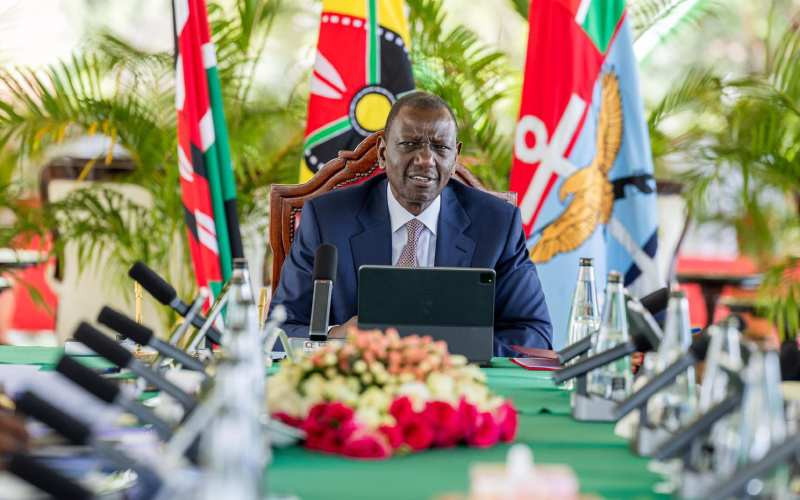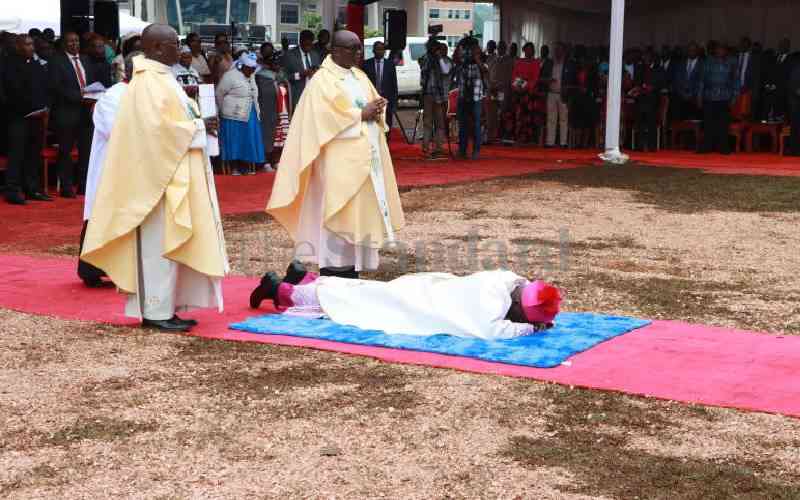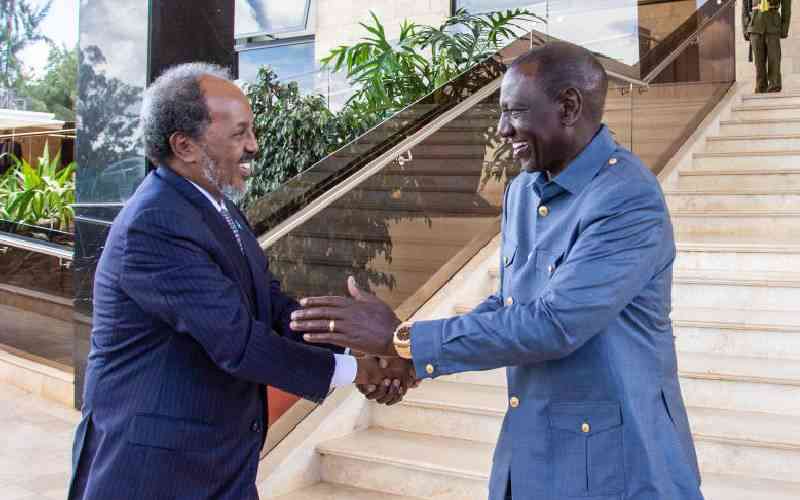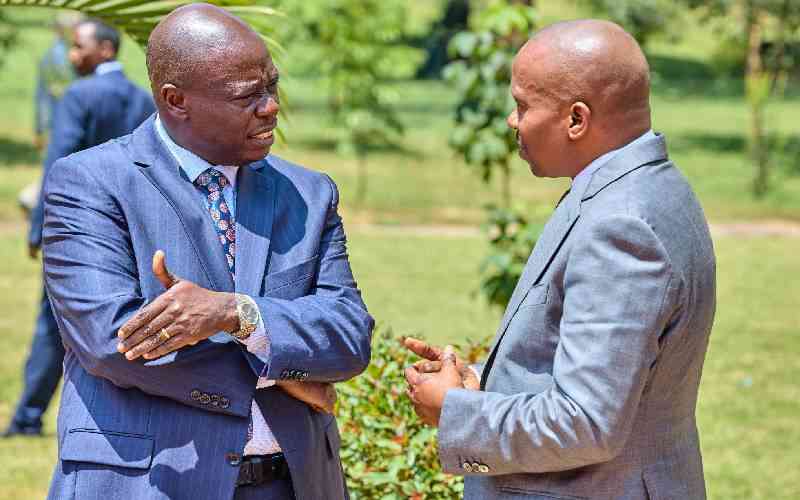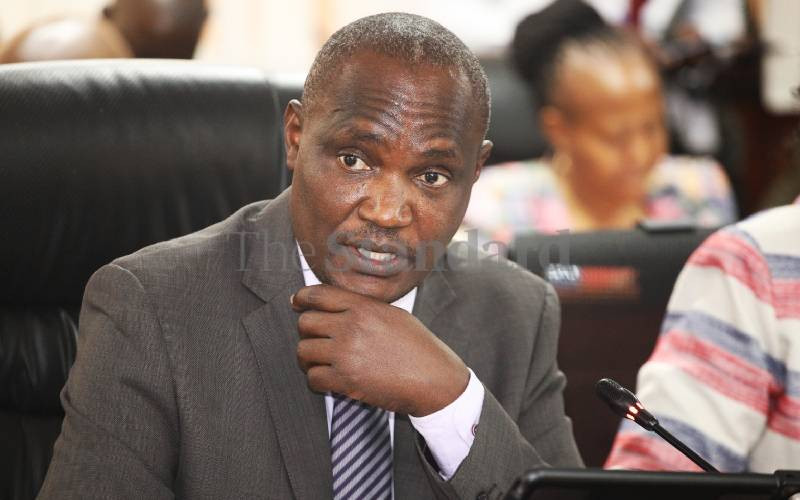In democratic societies, public service is a privilege bestowed on individuals by the people. It is a call to serve given by the people, who are sovereign. The higher the office given, the bigger the privilege. The attraction of political office in democracies is higher since it is the people, through universal suffrage, who determine the occupants. It is a great honour for one to be called to serve through the free will and choice of the people in an election.
For politicians, ascension to office is a crowning moment resplendent with pomp and ceremony. It is the pinnacle of self-actualisation and a vindication of the principles and ideals an individual politician holds. To rise to political office with the goodwill of the people blowing behind a politician’s sails is both encouraging and fulfilling. The politician then becomes the personification of the dreams and aspirations of the people. His or her very life begins to take on a larger than life proportion, as if the fate of his people depends on his existence. Men will throw themselves in the way of danger to protect the life of the one man or woman believed to carry the dreams of a people.
It is here that many good intentions fail and flounder. Insulated from criticism and surrounded by praise, the politician slowly dissolves into a mass of self-righteousness. Buoyed by the soothing words of satiated friends, he begins to look at the contentment of kith and kin as contentment of the people. With rising discontent outside the inner circle, so too does his intolerance for dissent rise. Dissent becomes betrayal if on the inside, or outright criminal if outside the convivial bubble.
African countries
This is the state many African countries find themselves in. Public office, which is rightly the property of the people, suddenly becomes the preserve of individuals and their cohorts of praise singers. By hook or crook, they contrive to keep the trappings to themselves, excluding all those that do not 'belong'. The dictates of the law and common decency become irritants to be subverted and defeated to protect individual interests. The interests of the people become secondary or even trifling as individual interests take centre stage.
No wonder the news that Ian Khama had stepped down as president of Botswana with a full year still to go to the end of his term, was confounding on a continent where a good number of leaders wait for death to end their rule.
Many African rulers invest in all manner of schemes to cheat death. Given that their stay in power is borne out of cheating the people out of their rights, they set all manner of rings around themselves to fend off enemies - real or imagined. State machinery and institutions cease to focus on their purpose and become tools for the perpetuation of one person's rule. So, the school ceases to teach and becomes an avenue for indoctrination. The hospital ceases to treat and becomes a decoy to lull the sick. The police force ceases to enforce the law and becomes a tool of oppression.
Then the ease with which Ian Khama transits from president to resident becomes a monumental task for the individual whose rule has been characterised by glaring malpractice. Then he is left with no choice but to hold on and wait for the inevitable. It is probably why the likes of Joseph Kabila in the Democratic Republic of Congo and Yoweri Museveni in Uganda find it inhospitable to leave power.
In the case of Museveni, it is also probably true that he cannot imagine Uganda thrusting ahead triumphantly without himself as the shepherd. It is true that Museveni rescued Uganda from a rut. It is also true that Paul Kagame rescued Rwanda from the dead. These two men have breathed so much life into their countries that they could easily be mistaken to be the very heart of their respective countries. They are true gifts to their nations and the people of East Africa.
However, like good parents are to their children, they must prepare their nations for the inevitable – life without Daddy.
Mould successor
It is the challenge of every good leader to mould a successor. It is the least he can do to reward the people for their faith in him. The people need not go back to their gods in search of new leaders when they have afforded a politician the space to grow and mould a new leader.
The change from one leader to the next should not be as traumatic as the birth of the first one. The trauma of one beginning should lead to relief during the transition to the next generation.
So, the dance and pomp witnessed as Michelle Bachelet left office as president of Chile should not be the stuff of fantasy to Africans. We too should dance and cheer as one leader leaves office and the next takes over. Leadership is about service to the people, not ownership of power.
Dr Kingi is deputy governor, Mombasa County
Stay informed. Subscribe to our newsletter
 The Standard Group Plc is a
multi-media organization with investments in media platforms spanning newspaper
print operations, television, radio broadcasting, digital and online services. The
Standard Group is recognized as a leading multi-media house in Kenya with a key
influence in matters of national and international interest.
The Standard Group Plc is a
multi-media organization with investments in media platforms spanning newspaper
print operations, television, radio broadcasting, digital and online services. The
Standard Group is recognized as a leading multi-media house in Kenya with a key
influence in matters of national and international interest.
 The Standard Group Plc is a
multi-media organization with investments in media platforms spanning newspaper
print operations, television, radio broadcasting, digital and online services. The
Standard Group is recognized as a leading multi-media house in Kenya with a key
influence in matters of national and international interest.
The Standard Group Plc is a
multi-media organization with investments in media platforms spanning newspaper
print operations, television, radio broadcasting, digital and online services. The
Standard Group is recognized as a leading multi-media house in Kenya with a key
influence in matters of national and international interest.


